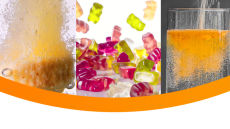Calcium supplements may not impact lead levels
with moderate lead poisoning, finds a new study published in this
month's Pediatrics journal.
Inspired by suggestions that calcium interferes with lead binding to the intestinal cells and could potentially affect its uptake, researchers in New York at the Children's Hospital in Montefiore set out to investigate the role that calcium supplements might have on reducing blood lead levels (BPbs) in inner city children.
Children aged 1 to 6 years with lead levels at 10 to 45 µg/dL were enrolled in a double-blinded, placebo-controlled trial of the effects of calcium supplementation on the levels.
They received either a calcium-containing liquid or an indistinguishable placebo. One reason why this study did not show an effect could be that the subjects of this study were eating a diet containing the recommended amounts of calcium and so were not calcium deficient, suggest the scientists. The researchers now hope to test supplementation in children who are consuming less calcium.
'Although BPbs declined during a 3-month period in both groups, calcium supplementation aimed at providing 1800 mg of calcium a day had no effect on the change in BPbs,' report the scientists.
They put forward several theories as to why they found no effects. First, the decreasing lead exposure reflected by lead levels in blood during the study would mean any effect of calcium would be attenuated.
Second, the children were consuming a calcium rich diet. Historical studies suggested that the children might not be consuming a calcium rich diet, in which case the maximal effect of calcium intake might have been achieved before study enrollment.
The way the calcium was given might also have played a role. Administration with meals ensured 'compliance' but might not be close to a time when lead exposure occurred.
Full findings of "A Randomised Trial of Calcium Supplementation for Childhood Lead Poisoning" by Morri E. Markowitz, Mark Sinnett, and John F. Rosen, are published in Pediatrics (2004), 113: e34-e39.












